Humans
-
 Health & Medicine
Health & MedicineExplainer: How the ears work
Most people probably think of their ears as the flaps on the sides of their heads. But there’s a lot of machinery inside that lets us hear our favorite tunes.
By Janet Raloff and Bethany Brookshire -
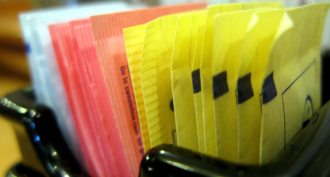 Chemistry
ChemistryWhen bitter + bitter = sweet
Two artificial sweeteners lose their bitter aftertastes when combined together. Scientists have just figured out why.
-
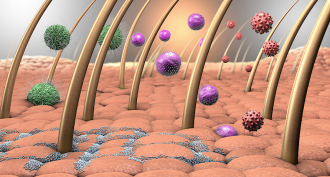 Microbes
MicrobesSweat-slurping ‘aliens’ live on your skin
Archaea are famous for living in extreme environments. Now scientists find they also inhabit skin, where they seem to enjoy sweat.
-
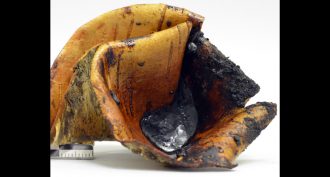 Archaeology
ArchaeologyFiery tests suggest gooey tech by Neandertals
Neandertals could have used simple methods and handy materials to make tar. It would have helped them glue their tools together.
By Bruce Bower -
 Health & Medicine
Health & MedicineThe power of ‘like’
A single “like” on a social-media post can make it much more popular, which can influence how teens behave.
-
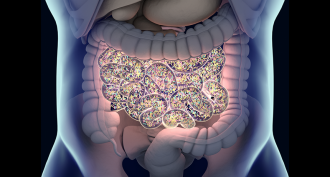 Health & Medicine
Health & MedicineHow bugs in your gut might hijack your emotions
Tiny molecules in the brain may help bugs in the gut hijack people’s emotions. That’s the conclusion of some new research.
-
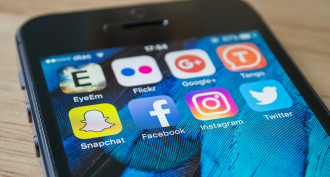 Health & Medicine
Health & MedicineSocial media: What’s not to like?
Social media can help teens connect with friends and family. Sometimes, however, it may leave them feeling depressed or isolated.
-
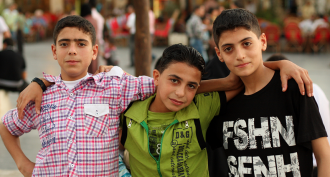 Chemistry
ChemistrySpecially coated fabric could turn a shirt into a shield
Specially treated fabrics offer a new kind of defense against chemical attacks. It could protect troops — and people living in war-torn nations where chemical weapons may be used.
-
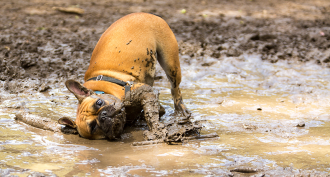 Health & Medicine
Health & MedicineGood germs lurk in gross places
What do poop, dog drool and snot have in common? Though disgusting, they all carry microbes that can help keep people healthy.
-
 Brain
BrainUnderstanding body clocks brings three a Nobel Prize
Three American men will share this year’s Nobel prize for physiology or medicine. The award recognizes their contributions to understanding the workings of the body’s biological clock.
By Tina Hesman Saey and Aimee Cunningham -
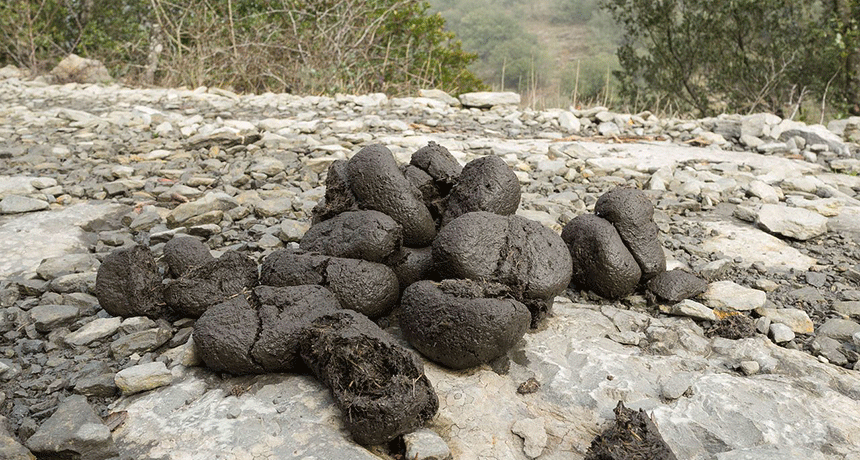 Animals
AnimalsScientists Say: Dung
This word is used to refer to animal poop. You know, manure. Crap. Feces.
-
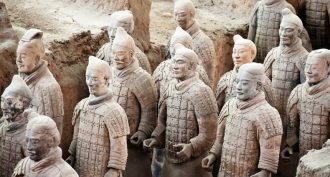 Archaeology
ArchaeologyClay reveals secrets of China’s mysterious terra-cotta army
Production of the famous terra-cotta troops found in ancient Chinese emperor’s tomb was made possible by a specialized system of clay manufacturing.
By Bruce Bower